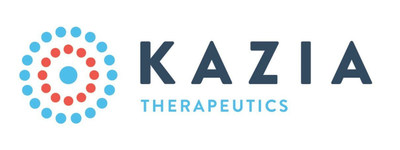Kazia Therapeutics Reports Early Conclusion of Clinical Trial After Reaching Primary Endpoint
Paxalisib plus Radiotherapy Data Shows Promise for Treating Patients with PI3K Pathway Mutation Brain Metastases
Part I of the study established the maximal tolerated dose (MTD) of paxalisib in combination with radiation therapy, while also demonstrating promising signs of clinical activity in all nine evaluable patients. Part II was a follow-on expansion cohort to further evaluate safety and efficacy of the MTD (45mg daily) combined with radiation therapy in up to 12 additional patients.
After reviewing the Part II patient data generated to date, the three lead investigators have determined that the primary endpoint of the study has been reached. In addition, the investigators continued to observe encouraging signs of clinical response in patients in the expansion cohort. Detailed findings from Part II of this study are slated for submission and presentation at a forthcoming global scientific meeting, where they will contribute to the ongoing conversation about treatment options for patients with these complex brain metastases.
Kazia's CEO, Dr. John Friend, shared his enthusiasm: "We are extremely excited about these findings, which include not only encouraging safety data but also some promising efficacy signals for paxalisib in combination with radiation therapy. We are now preparing to engage with the Food and Drug Administration to discuss the data and seek guidance on the conduct of a pivotal registration study, with the goal of rapidly progressing paxalisib's development to potentially provide a more effective treatment option for patients with brain metastases."
Previous research by Dr. Jonathan Yang, Director of Metastatic Disease and Developmental Therapeutics, Department of Radiation Oncology, University of Washington School of Medicine, and others, has shown that activation of the PI3K pathway is common in brain metastases. Moreover, PI3K pathway activation appears to result in tumor resistance to radiotherapy, which supports the rationale for evaluating paxalisib with radiotherapy in order to potentially sensitize the tumor cells to radiotherapy and achieve better disease control. Dr. Yang presented the Part I data at the 2022 Annual Conference on CNS Clinical Trials and Brain Metastases, jointly organized by the Society for Neuro-Oncology and the American Society for Clinical Oncology, held in
Last year, paxalisib was awarded Fast Track Designation (FTD) on the basis of the Part I clinical data by the United States Food and Drug Administration (FDA) for the treatment of solid tumor brain metastases harboring PI3K pathway mutations in combination with radiation therapy.
Approximately 200,000 cancer patients develop brain metastases in
About Kazia Therapeutics Limited
Kazia Therapeutics Limited (NASDAQ: KZIA) is an oncology-focused drug development company, based in
Our lead program is paxalisib, an investigational brain-penetrant inhibitor of the PI3K / Akt / mTOR pathway, which is being developed to treat multiple forms of brain cancer. Licensed from Genentech in late 2016, paxalisib is or has been the subject of ten clinical trials in this disease. A completed Phase 2 study in glioblastoma reported early signals of clinical activity in 2021, and a pivotal study in glioblastoma, GBM AGILE, is ongoing, with final data expected in 1H2024. Other clinical trials are ongoing in brain metastases, diffuse midline gliomas, and primary CNS lymphoma, with several of these having reported encouraging interim data.
Paxalisib was granted Orphan Drug Designation for glioblastoma by the FDA in February 2018, and FTD for glioblastoma by the FDA in August 2020. Paxalisib was also granted FTD in July 2023 for the treatment of solid tumour brain metastases harboring PI3K pathway mutations in combination with radiation therapy. In addition, paxalisib was granted Rare Pediatric Disease Designation and Orphan Drug Designation by the FDA for diffuse intrinsic pontine glioma in August 2020, and for atypical teratoid / rhabdoid tumours in June 2022 and July 2022, respectively.
Kazia is also developing EVT801, a small-molecule inhibitor of VEGFR3, which was licensed from Evotec SE in April 2021. Preclinical data has shown EVT801 to be active against a broad range of tumour types and has provided evidence of synergy with immuno-oncology agents. A Phase I study is ongoing and preliminary data is anticipated in CY2024.
For more information, please visit www.kaziatherapeutics.com or follow us on Twitter @KaziaTx.
Forward-Looking Statements
This announcement may contain forward-looking statements, which can generally be identified as such by the use of words such as "may," "will," "estimate," "future," "forward," "anticipate," or other similar words. Any statement describing Kazia's future plans, strategies, intentions, expectations, objectives, goals or prospects, and other statements that are not historical facts, are also forward-looking statements, including, but not limited to, statements regarding: the timing for results and data related to Kazia's clinical and preclinical trials and investigator-initiated trials of Kazia's product candidates, and Kazia's strategy and plans with respect to its programs, including paxalisib and EVT801. Such statements are based on Kazia's current expectations and projections about future events and future trends affecting its business and are subject to certain risks and uncertainties that could cause actual results to differ materially from those anticipated in the forward-looking statements, including risks and uncertainties: associated with clinical and preclinical trials and product development, related to regulatory approvals, and related to the impact of global economic conditions. These and other risks and uncertainties are described more fully in Kazia's Annual Report, filed on form 20-F with the United States Securities and Exchange Commission (SEC), and in subsequent filings with the SEC. Kazia undertakes no obligation to publicly update any forward-looking statement, whether as a result of new information, future events, or otherwise, except as required under applicable law. You should not place undue reliance on these forward-looking statements, which apply only as of the date of this announcement.
This announcement was authorized for release by Dr John Friend, CEO.
![]() View original content to download multimedia:https://www.prnewswire.com/news-releases/kazia-therapeutics-reports-early-conclusion-of-clinical-trial-after-reaching-primary-endpoint-302067134.html
View original content to download multimedia:https://www.prnewswire.com/news-releases/kazia-therapeutics-reports-early-conclusion-of-clinical-trial-after-reaching-primary-endpoint-302067134.html
SOURCE Kazia Therapeutics Limited






